Venezuela crisis: Beyond the political drama, normal people are struggling to survive
Megan Specia and Ana Vanessa Herrero share views from those most affected by conflict in Venezuela
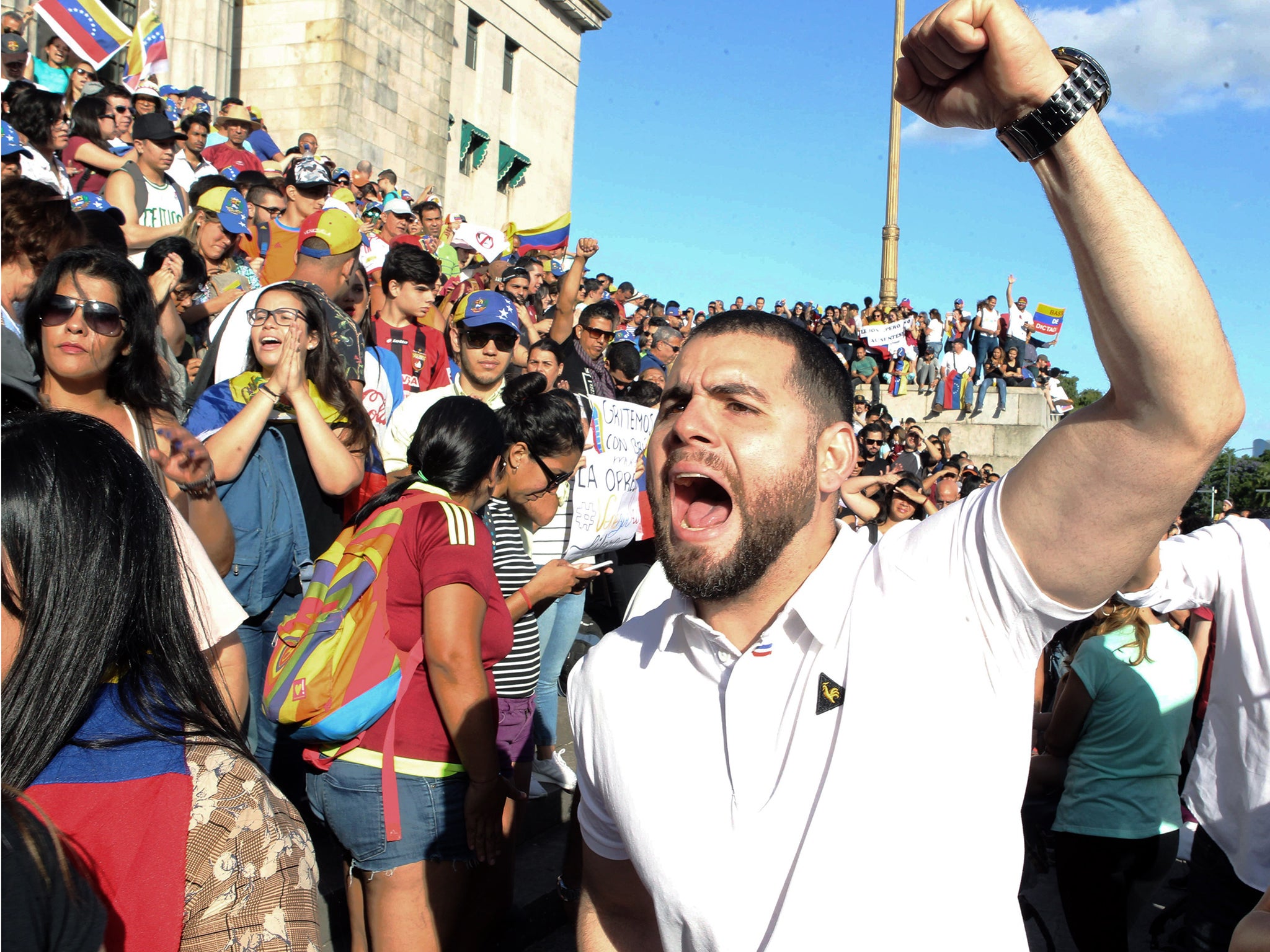
Venezuela is on the brink. Grocery shelves lie empty as food becomes increasingly scarce and expensive. People are fleeing the country at record rates, flooding neighboring countries. Inflation is set to reach 10 million per cent in 2019.
In this landscape of desperation, public outrage was already coming to a head when last week, Juan Guaidó, the opposition leader and head of the National Assembly, declared himself interim president. The recently re-elected president Nicolás Maduro has vowed to continue on.
International attention swiftly turned to the two men at the centre of the struggle for control of the country. But in the midst of the political push-and-pull, average Venezuelans are still struggling to get by in a country that has grown increasingly violent and where food shortages, electricity cuts and water shortages are the new normal. Deadly crackdowns on dissent are regular.
Anti-government demonstrations are planned for Caracas today, and with discontent growing, new groups are taking to the streets, including those who were once staunch supporters of Maduro and his predecessor, Hugo Chávez.
We asked residents of the city to describe what their living situation is like these days, and if it is a factor driving them to take part in the demonstrations.
‘We are starving here’
Auristela Donawa, 67
The government benefits that Donawa and her family have long relied on – like many of those from poor neighborhoods of Caracas – are no longer enough.
“We are starving here,” she says, describing how she and her son Dixon Bront are struggling to provide for her grandchildren. “He has a nine-year-old daughter and a 17-year-old boy, and he can’t buy anything for them. This is becoming impossible.”
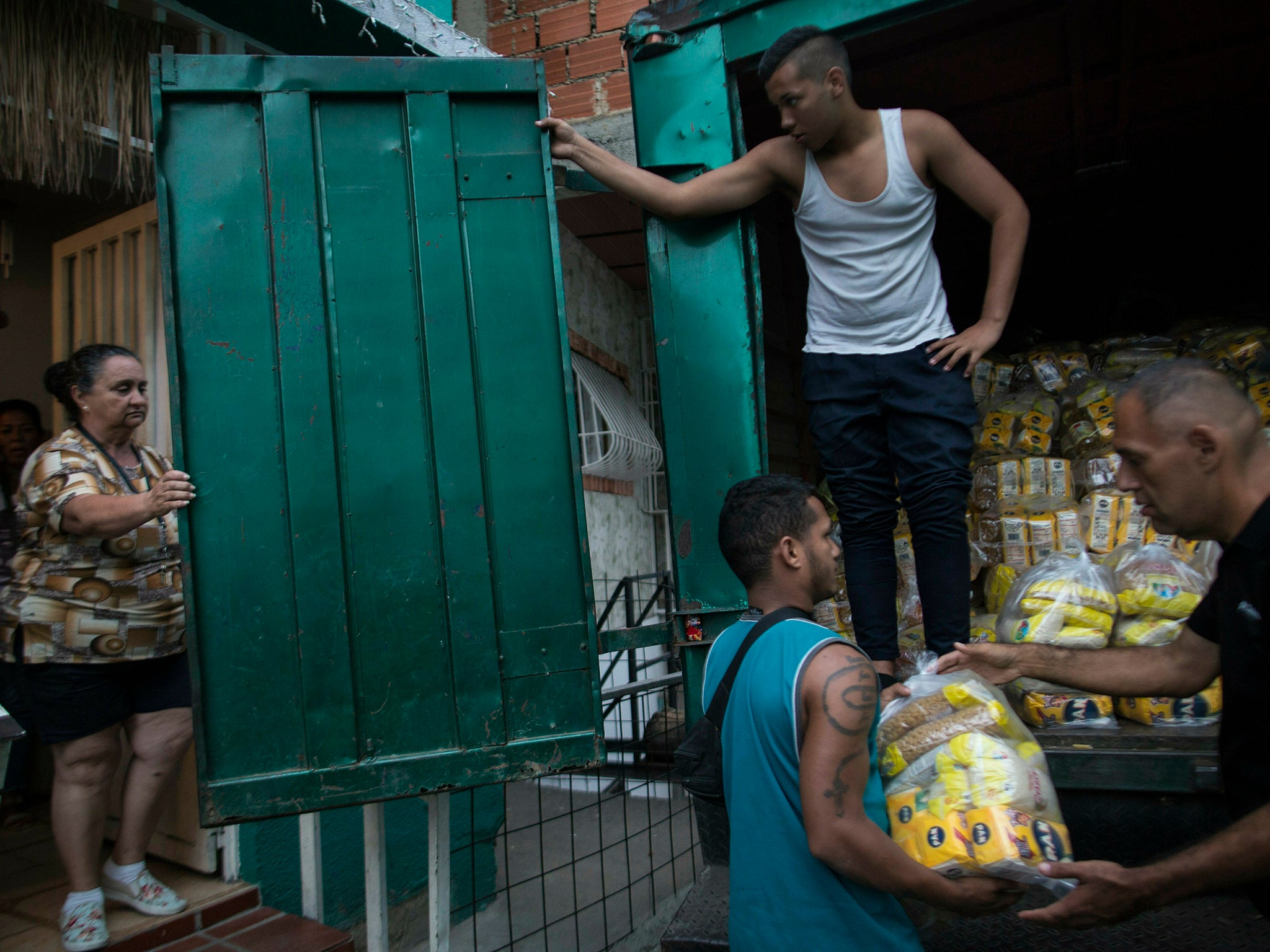
Donawa never voted for Maduro or Chávez, but her son was a supporter of the socialist government.
“I don’t know if he voted for Chávez, but he sympathised with him,” she says.
Bront and Donawa are beneficiaries of several government programmes like Misión Vivienda, which provides housing for the poor, and a food distribution programme known as “Clap”.
But Donawa says the government food box is often limited to sugar, pasta and powdered milk.
As benefits have deteriorated, Bront, once a supporter of the government, decided to join the protesters calling for its demise.
Two weeks ago, he was injured during demonstrations – shot in the stomach at close range by security forces – and is now bedridden after two surgeries, putting a further strain on the family.
I had to buy everything. The chemotherapy, the antibiotics, the needles. But now it’s even worse. I have to buy gloves, cotton, alcohol, water, even the tubes for the lab if I need to ask for a blood test
“I can’t be here in a hospital, sleeping in a chair,” Donawa says from her son’s bedside. “It’s not that I do not agree with him protesting, he is doing it like any other Venezuelan that is unhappy with this communist government.”
Her son has leukemia, but his hospital has no medicine
Lourdes Cedeño, 41
“It is like the world opens in half and you just want to jump into the crack,” says Cedeño, describing how she felt six years ago when she first found out her son, Miguel, had leukemia.
Things were still manageable then. Her son was moved from a private hospital to the public Central Hospital of Venezuela where he was given medical treatment paid for by the state.
He went into remission for years, but in 2017, Miguel’s cancer returned. That’s when, Cedeño says, everything changed. It was a race against time to get him proper treatment.
“I had to buy everything,” she says. “The chemotherapy, the antibiotics, the needles. But now it’s even worse. I have to buy gloves, cotton, alcohol, water, even the tubes for the lab if I need to ask for a blood test.”
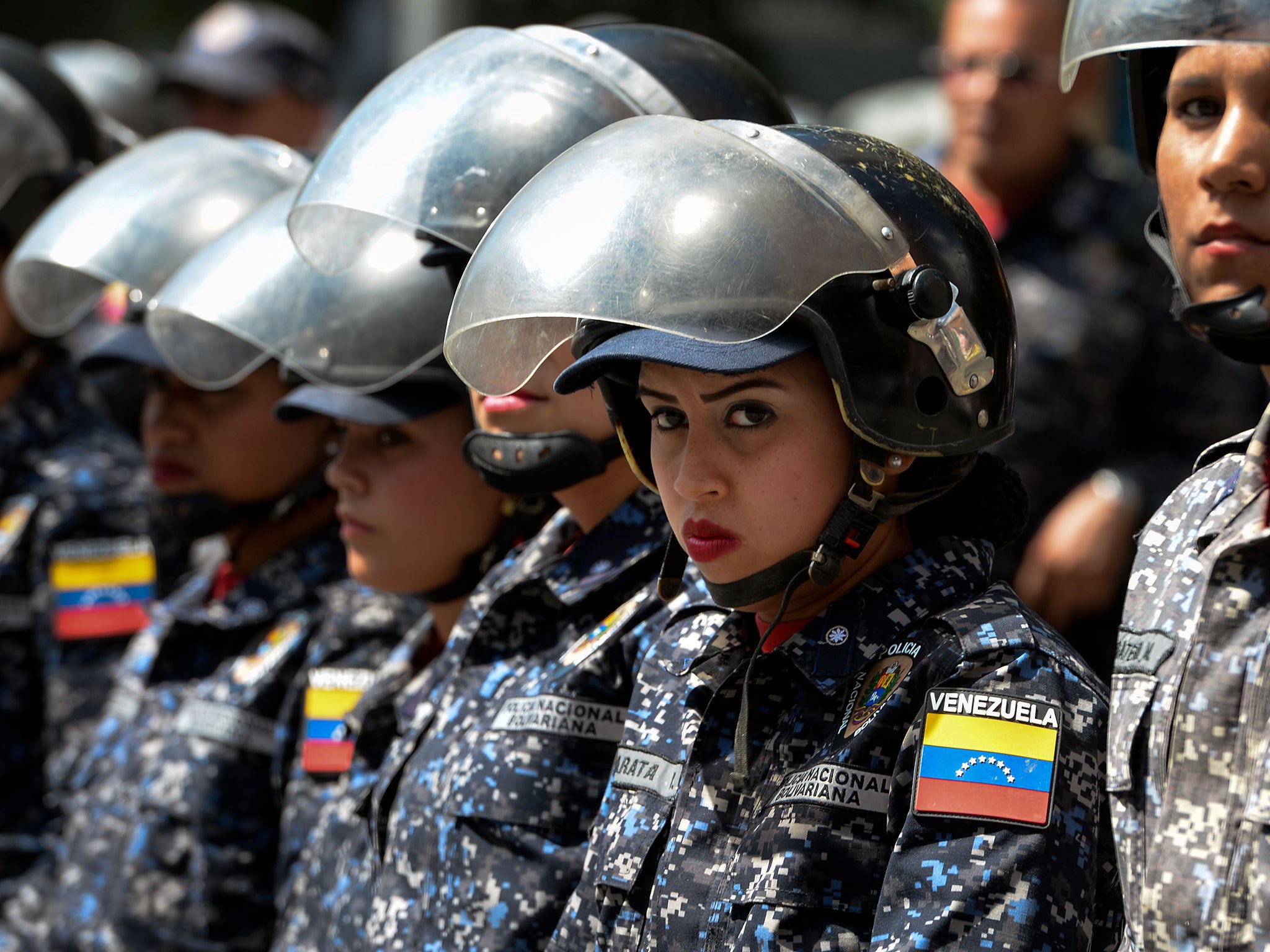
Venezuela’s main hospital has become a symbol of the catastrophic unravelling of the country’s healthcare system. It is often without running water, medicine and even doctors. The electricity regularly cuts out, which has resulted in patient deaths, opposition politicians say.
Cedeño says she has never been a fan of the protests, but her son has told her he is eager to attend them.
“He said, ‘Mom, I want to go out and make them feel the rage I feel everyday I am at this hospital without any help’,” she says
‘I have faith and hope’
Sunny Balza, 35
Balza, 35, was a captain in the Venezuelan National Guard and quickly moved up the ranks, gaining the trust of officials who grew to rely on him, including Nicolás Maduro Guerra, Maduro’s son. But he didn’t always support the decisions of his superiors.
“I never agreed with their lines, ever,” he says.
Two years ago, he fled Venezuela for the United States, where he now manages a company. Guaidó, as interim president, has proposed amnesty for members of the armed forces who are willing to break with Maduro’s government, but Barza is unsure whether he will return.
It is like the world opens in half and you just want to jump into the crack
“I worked from the inside against the government,” Barza says, adding that he didn’t necessarily think he needed to ask for amnesty. While he would like to get involved with some of the protests being held in the United States, he doesn’t have time with his busy work schedule. But for the first time in years, he sees a way forward for his country.
“I have faith and hope,” he says.
She was detained for 118 days in a windowless room
Lisbeth Añez, 52
Añez knows what the government’s crackdown on dissent looks like. She was arrested in May 2017, accused of involvement with groups organising daily anti-government protests.
“I gave them food, I offered them shelter,” she says. “That is why they call me mamá.”
For 118 days, she was held in a windowless room with another woman accused of gas smuggling. After the protests ended that year, Añez couldn’t go back to her old life, saying being in jail had changed her.
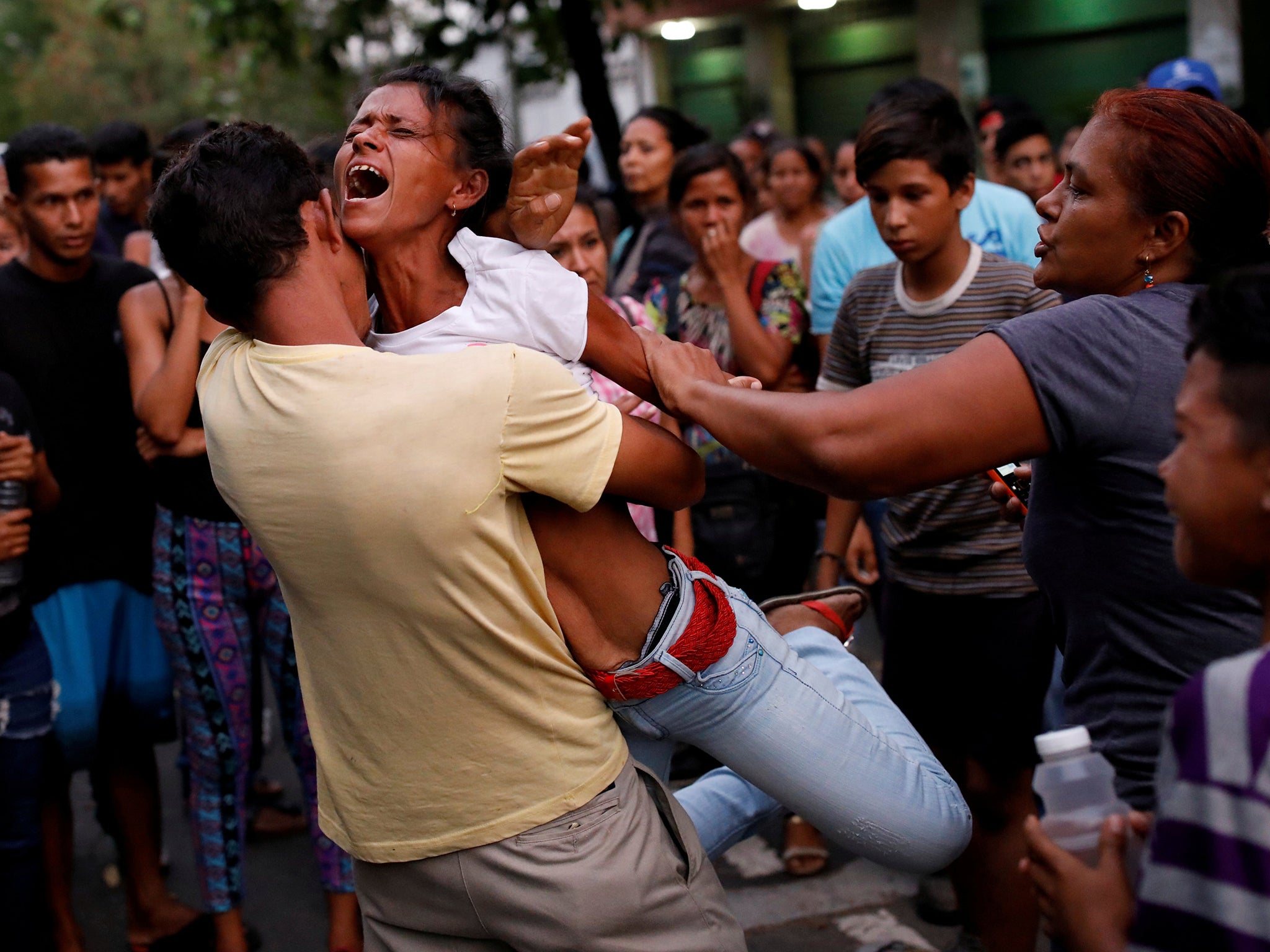
“I can only tell you I am a better person now, and that I also knew true evil,” she says.
Since the latest round of protests began last month, Añez has scavenged for supplies for those wounded by the military and security forces. She has treated at least three protesters who were injured during recent demonstrations.
Añez says earlier protests in 2014 and 2017 were too violent and not effective.
“Protests have to be like the one we had on the 23rd,” she says, referring to largely peaceful mass anti-government protests held the day Guaidó swore himself in as interim president, “the kind that you can’t hide.”
‘I will be out there with my gas mask’
Iñaki Zugasti, 60
Born in Spain but raised in Venezuela, Zugasti has been active in the opposition protest movement since Maduro first came to power in 2013. He plans to join the large demonstrations planned this weekend.
“This Saturday, I will be out there with my gas mask, my helmet and vest, to see what I can show the world,” he says.
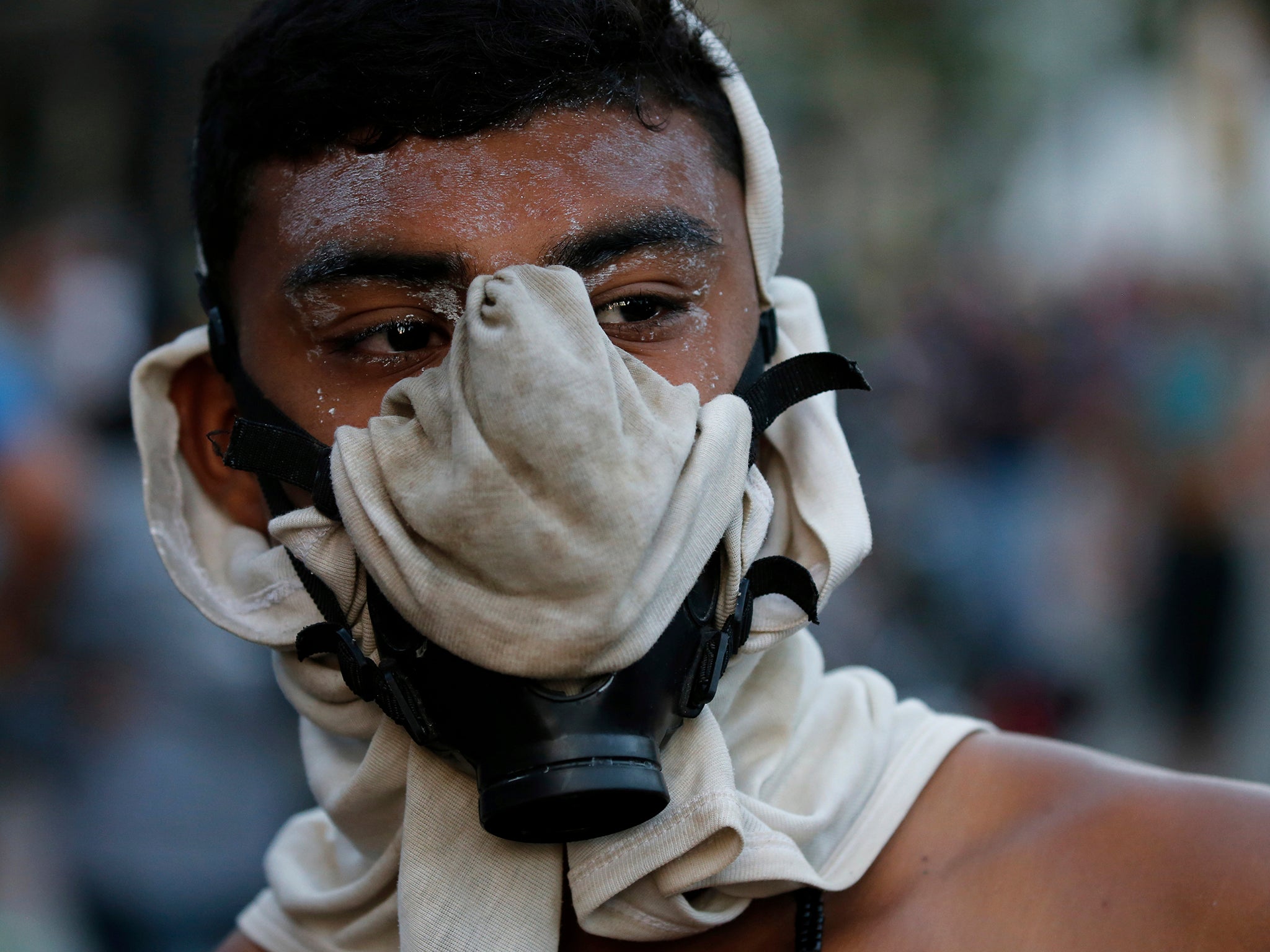
Zugasti owned a family printing company for two decades, which enabled him to provide for his family. But profits dwindled, and in 2018, he closed the business.
He says new people from different walks of life have been joining the recent protests. Before, he says, the movement was largely driven by the middle and upper classes.
“I used to see the same face every day, now it’s different,” he says.
Zugasti takes his camera with him when he protests, and took one especially memorable photo on 4 April 2017, of a young congressman confronting police who were blocking a march on Libertador Avenue.
He didn’t know it then but the politician in the photo was Guaidó, who would become a major player in the country’s current political standoff.
“Every time I hear that he is someone that just started in politics, I know it’s not true,” Zugasti says. “He was always on the front line during protests. I remember him at every demonstration I went to.”
© New York Times

Join our commenting forum
Join thought-provoking conversations, follow other Independent readers and see their replies
Comments
Bookmark popover
Removed from bookmarks